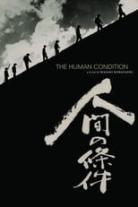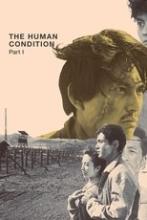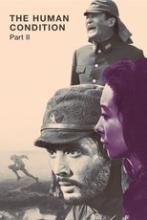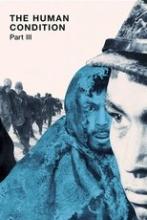
The Human Condition Collection
The Human Condition is a Japanese film epic released as a trilogy between 1959 and 1961. The trilogy follows the life of Kaji, a Japanese pacifist and socialist, as he tries to survive in the totalitarian and oppressive world of World War II-era Japan. Taken altogether as a single film, it is 9 hours and 47 minutes long, which includes intermissions, making it one of the longest narrative films ever made. While the films earned considerable controversy at the time of their release in Japan, The Human Condition was critically acclaimed, won many international awards, and has since established Masaki Kobayashi as one of the most important Japanese directors of his generation.
The Human Condition I: No Greater Love (1959)
15 January, 1959
After handing in a report on the treatment of Chinese colonial labor, Kaji is offered the post of labor chief at a large mining operation in Manchuria, which also grants him exemption from military service. He accepts, and moves to Manchuria with his newly-wed wife Michiko, but when he tries to put his ideas of more humane treatment into practice, he finds himself at odds with scheming officials, cruel foremen, and the military police.
The Human Condition II: Road to Eternity (1959)
20 November, 1959
Kaji is sent to the Japanese army labeled Red and is mistreated by the vets. Along his assignment, Kaji witnesses cruelties in the army and revolts against the abusive treatment against the recruit Obara. He also sees his friend Shinjô Ittôhei defecting to the Russian border, and he ends in the front to fight a lost battle against the Russian tanks division.
The Human Condition III: A Soldier's Prayer (1961)
28 January, 1961
After the Japanese defeat to the Russians, Kaji leads the last remaining men through Manchuria. Intent on returning to his dear wife and his old life, Kaji faces great odds in a variety of different harrowing circumstances as he and his fellow men sneak behind enemy lines.



